Evaluating Sense Active virtual sessions for children with complex disabilities
Research summary
On this page, you’ll discover the key findings of this 2023 research, as well as a summary of the motivations and methodology. You can also access the full report.
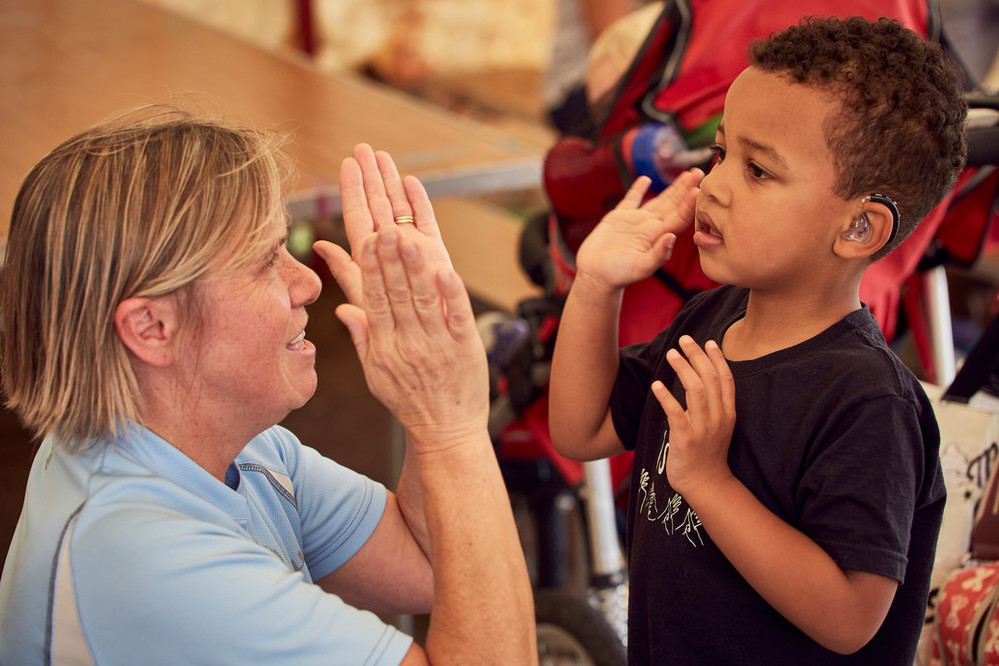
Overview of the programme
As part of our work to ensure that no one is left out of life, Sense runs inclusive and accessible sports programmes across the country. Through these sessions, people who are deafblind or living with complex disabilities have the opportunity to be active and connected, no matter their age or disability.
‘Sense, Active Together’ was a project run by the Sense Active team between 2019 and 2023, with funding from Sport England and the National Lottery.
Our evaluation aims
We wanted to better understand what our programme was offering to its participants. An evaluation was planned. Its aim was to measure health and wellbeing outcomes in the children who were taking part in the physical activities.

But, of course, soon after the programme opened, we were faced with the Covid-19 pandemic. As a result, Sense shifted from in-person delivery of activities to virtual activity sessions run on Zoom. The programme evaluation also had to be adapted to align with this new virtual format.

So, we had a new focus: to develop and test a data collection methodology in a virtual activity setting.
Read the full report here:
Sense Active research 2023: Feasibility of data collection with children with complex disabilities during virtual activity session.
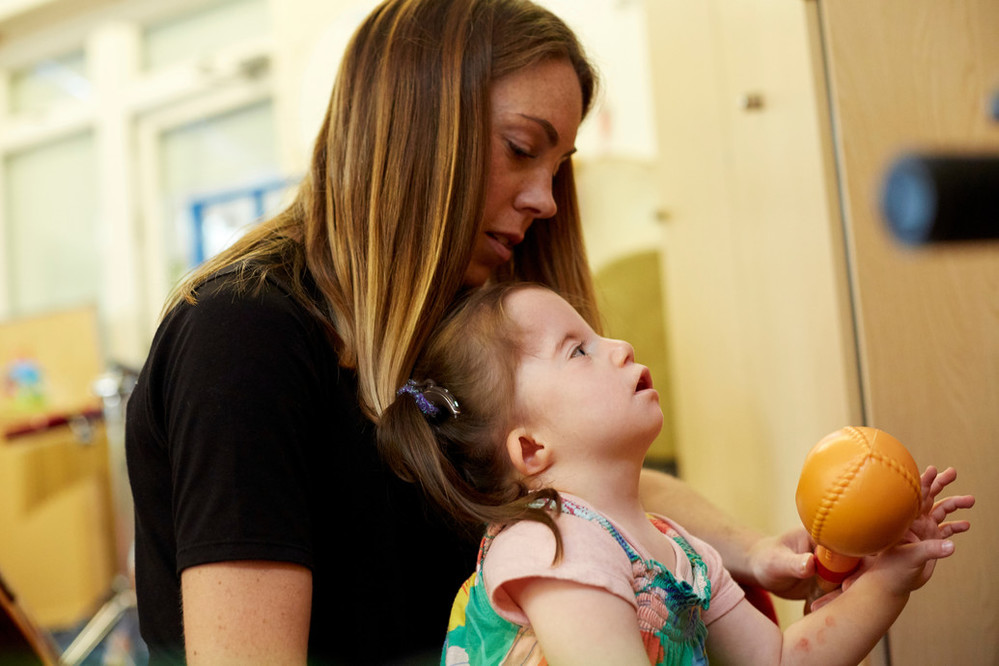

“The online activities are truly fantastic, my little boy gains so much from joining in these sessions. His development has come on in leaps and bounds: he’s trying to communicate more, make choices and anticipate activities.”
Parent feedback during a Sense Online Family session

How was the research carried out?
Data was collected during the online sessions through interactive image cards, co-created by the Sense Active team and the ukactive Research Institute.
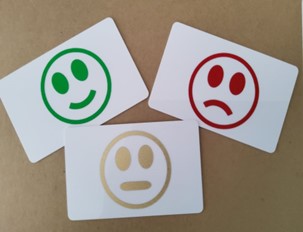
Each child was provided with the cards so that they might be used to answer three questions, with their parents or carers supporting with the responses. The three questions were:
- How do you feel today?
- Did you like today’s session?
- Do you like taking part in the exercise?
While the interactive cards were useful, some children found them too complex. Many children chose instead to respond using another preferred method of communication, with parents providing insights and their own observations. Being able to capture this data proved incredibly important to the research.
Key learnings
The report recommends a mixed approach to data collection, including a standardized set of questions but a flexible response method.

Ultimately, the cards were not accessible. For some children, the symbolism wasn’t something they could easily grasp and utilise.
Observations of the children’s behaviour – from the session leaders, parents and carers – gave a better understanding of individual engagement.
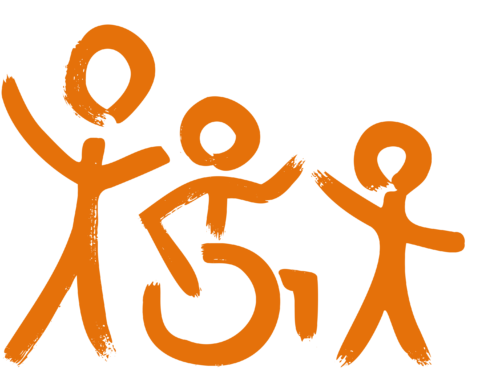
The input from families was especially valuable. They shared insights ahead of the sessions to help us gauge their child’s reactions to the activities.

However, such observations were hard for leaders to conduct in a virtual setting.
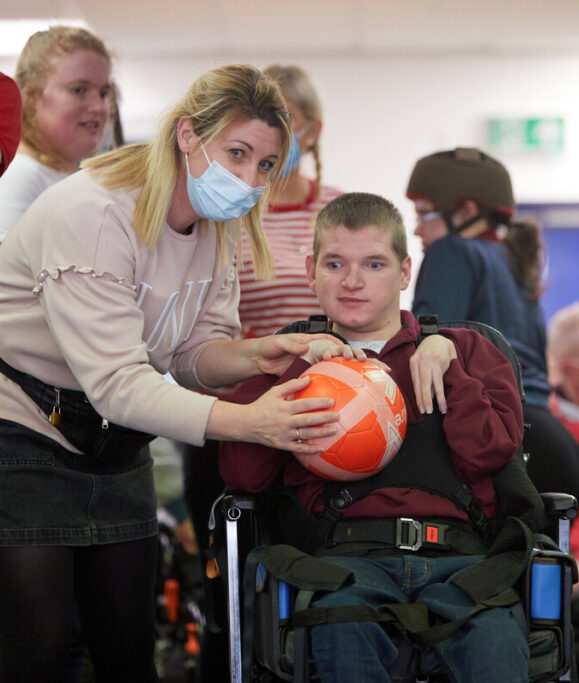
What does our future approach look like?
Collaboration with parents and carers
The report emphasised the need for a greater level of collaboration between researchers, experts and families. The insights and perspectives of the latter group were hugely valuable. Inclusion of their ideas and observations could be beneficial for both the research and the development of Sense services.
Researchers highlighted the risk of bias from parents and carers, who were tempted to respond on behalf of their children.
It was also important to support parents to provide honest feedback, not just positive reviews.
We want to avoid any bias with stronger relationships, earlier parent-researcher conversations and more communication options for the children.
“As a parent, I’ve learned so much. I feel more confident to try out the activities again on my own. I think it’s really supported my own mental health, having something exciting to look forward to – to really bond and have shared experiences with my child.”
Parent feedback during a Sense Online Family session
No limits on communication methods
No matter the level of expertise involved, the research process must not rely on assumptions. The children that Sense supports use many varied forms of communication and shouldn’t be restricted to one response method. As far as is possible, our approach should be personalised and flexible.
Having a standardised element in the data collection was agreed to be useful but may be better done through a standardised set of questions, rather than a set response method. Further refinement of the interactive cards, using a co-creation approach, could then make this method viable for future research.
Why we conducted this research
‘Sense, Active Together’ aims to provide lifelong opportunities for people with who are deafblind or have complex disabilities to take part in sport and physical activity. We want to promote this across the country and influence the creation of more inclusive activities. Having evidence of the impact and benefits of sport and physical activity would support this aim.
Research involving children with complex disabilities is relatively unusual, due to the extra considerations, such as communication style.
As far as the ukactive research team and Sense teams were aware, collecting data from this group virtually had not been undertaken before.
Read the full report here:
Sense Active research 2023: Feasibility of data collection with children with complex disabilities during virtual activity session.
Get in touch
If you have any questions about the research, please contact [email protected]
